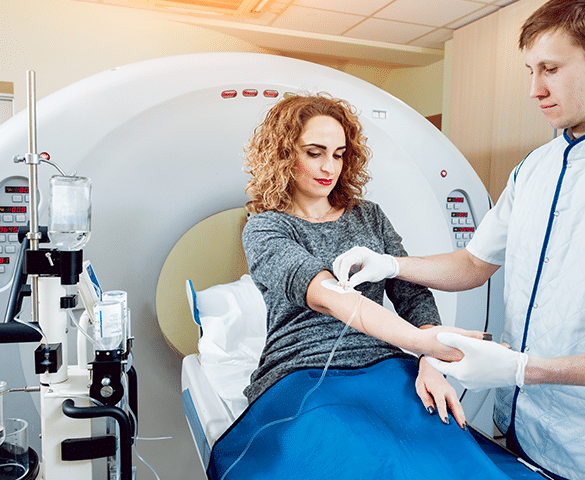Acupuncture, an ancient Chinese healing practice, has gained widespread popularity in recent years as a complementary or alternative treatment for various health conditions. From chronic pain to stress relief, many people swear by its effectiveness. However, as with any medical or therapeutic procedure, it’s natural to wonder: Are there any risks or side effects associated with acupuncture? This blog post will explore the potential risks, side effects, and safety considerations of acupuncture to help you make an informed decision about this treatment.
What Is Acupuncture?
Before diving into the risks and side effects, let’s briefly understand what acupuncture entails. Acupuncture involves inserting thin, sterile needles into specific points on the body, known as acupuncture points or meridians. According to traditional Chinese medicine, this process helps balance the flow of energy (Qi) in the body, promoting healing and overall well-being. Modern research suggests that acupuncture may Stimulate Nerves, muscles, and connective tissue, boosting the body’s natural painkillers and increasing blood flow.
While acupuncture is generally considered safe when performed by a trained and licensed practitioner, it’s not entirely risk-free. Let’s explore the potential risks and side effects in detail.
Common Side Effects of Acupuncture
Most people experience minimal side effects from acupuncture, and any discomfort is usually mild and short-lived. Here are some of the most common side effects:
1. Soreness or Bruising at Needle Sites
After an acupuncture session, it’s not uncommon to feel slight soreness or notice minor bruising where the needles were inserted. This is typically harmless and resolves within a day or two. Using high-quality, sterile needles and proper insertion techniques can minimize this risk.
2. Fatigue or Drowsiness
Some people report feeling tired or drowsy after an acupuncture session. This is often a sign that the body is responding to the treatment and entering a state of relaxation. It’s a good idea to rest and hydrate after your session to help your body recover.
3. Mild Bleeding
In rare cases, a tiny amount of bleeding may occur at the needle insertion sites. This is usually minimal and stops quickly. If you have a bleeding disorder or are taking blood-thinning medications, inform your acupuncturist beforehand.
4. Temporary Pain or Discomfort
While acupuncture is generally not painful, some people may experience temporary discomfort during needle insertion. This sensation is often described as a dull ache or tingling and usually subsides quickly.
5. Emotional Release
Acupuncture can sometimes trigger an emotional release, leading to feelings of sadness, anxiety, or even euphoria. This is thought to be a result of the body’s energy rebalancing and is generally considered a positive sign of healing.
Rare but Serious Risks of Acupuncture
While serious complications from acupuncture are rare, they can occur, especially if the practitioner is inexperienced or unlicensed. Here are some of the more serious risks associated with acupuncture:
1. Infections
One of the most significant risks of acupuncture is the potential for infection if non-sterile needles are used. This can lead to bacterial or viral infections, including hepatitis or HIV. Always ensure that your acupuncturist uses single-use, disposable needles and follows strict hygiene protocols.
2. Organ Injury
Improper needle insertion can, in rare cases, cause injury to internal organs. For example, a needle inserted too deeply into the chest or back could puncture a lung, leading to a condition called pneumothorax (collapsed lung). This is extremely rare but highlights the importance of seeking treatment from a qualified and experienced practitioner.
3. Nerve Damage
Incorrect needle placement can potentially damage nerves, leading to numbness, tingling, or even long-term nerve injury. This is more likely to occur if the practitioner is not adequately trained.
4. Allergic Reactions
Some people may experience allergic reactions to the materials used in acupuncture, such as nickel in the needles or certain types of herbal preparations. If you have known allergies, discuss them with your acupuncturist before starting treatment.
5. Dizziness or Fainting
In rare cases, acupuncture can cause dizziness or fainting, particularly in individuals who are sensitive to needles or have low blood pressure. To minimize this risk, eat a light meal before your session and avoid standing up too quickly afterward.
Who Is at Higher Risk?
While acupuncture is generally safe for most people, certain individuals may be at higher risk of experiencing side effects or complications. These include:
- Pregnant Women: Some acupuncture points are believed to stimulate labor, so pregnant women should inform their acupuncturist and seek a practitioner experienced in prenatal care.
- People with Bleeding Disorders: Those with conditions like hemophilia or those taking blood-thinning medications should consult their healthcare provider before trying acupuncture.
- Individuals with Pacemakers: Electroacupuncture, a variation of traditional acupuncture, uses electrical currents and may interfere with pacemakers.
- People with Severe Chronic Illnesses: Those with conditions like cancer or severe heart disease should consult their doctor before undergoing acupuncture.
How to Minimize Risks
To ensure a safe and positive acupuncture experience, follow these tips:
- Choose a Licensed and Experienced Practitioner: Always seek treatment from a licensed acupuncturist with proper training and credentials. Check reviews and ask for recommendations if needed.
- Verify Hygiene Practices: Ensure that the practitioner uses sterile, single-use needles and maintains a clean environment.
- Communicate Openly: Inform your acupuncturist about any medical conditions, allergies, or medications you’re taking. This will help them tailor the treatment to your needs and avoid potential complications.
- Start Slowly: If you’re new to acupuncture, start with shorter sessions to see how your body responds.
- Listen to Your Body: If you experience severe pain, dizziness, or any unusual symptoms during or after treatment, inform your practitioner immediately.
The Benefits Often Outweigh the Risks
While it’s important to be aware of the potential risks and side effects of acupuncture, it’s equally important to recognize its many benefits. For millions of people worldwide, it has provided relief from chronic pain, reduced stress, improved sleep, and enhanced overall well-being. When performed by a qualified practitioner, the risks are minimal, and the potential rewards can be life-changing.
Frequently Asked Questions (FAQs)
1. Is acupuncture painful?
Most people find to be relatively painless. You may feel a slight prick or tingling sensation during needle insertion, but this is usually mild and temporary.
2. How many sessions do I need to see results?
The number of sessions required varies depending on your condition and individual response to treatment. Some people notice improvements after just one session, while others may need several sessions to achieve desired results.
3. Can acupuncture be combined with other treatments?
Yes, acupuncture is often used alongside conventional medical treatments. However, it’s essential to inform both your acupuncturist and healthcare provider to ensure a coordinated approach.
4. Is acupuncture covered by insurance?
Some insurance plans cover, especially if it’s recommended by a healthcare provider for a specific condition. Check with your insurance company to confirm coverage.
5. Are there any conditions acupuncture can’t treat?
While is effective for many conditions, it’s not a cure-all. It’s best used as a complementary therapy rather than a replacement for conventional medical treatment, especially for serious or life-threatening conditions.
Conclusion
Acupuncture is a safe and effective treatment for many people when performed by a qualified practitioner. While there are some risks and side effects, they are generally mild and rare. By choosing a licensed acupuncturist, communicating openly about your health, and following proper aftercare, you can minimize these risks and enjoy the potential benefits of this ancient healing practice.



